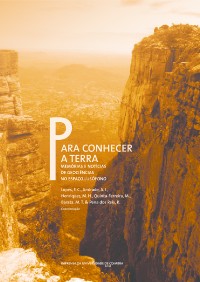Please use this identifier to cite or link to this item:
https://hdl.handle.net/10316.2/31481| Title: | Análise comparativa da legislação nacional sobre recursos hídricos nos países da CPLP | Other Titles: | Comparative analysis of the national legislation on water resources in the countries of the CPLP | Authors: | Andrade, A. I. Stigter, T. Y. |
Keywords: | Legislation;Water Resources;Uses;Protection;CPLP Countries;Legislação;Recursos hídricos;Usos;Proteção;Países da CPLP | Issue Date: | 2012 | Publisher: | Imprensa da Universidade de Coimbra | Journal: | http://hdl.handle.net/10316.2/24406 | Abstract: | Poor management, rather than scarcity, is considered the main reason for the
unavailability of water resources (WR). However, there is an inevitable inequality in WR
availability throughout the world, which is also clearly observed among the different countries
of the Community of Portuguese Language Countries (CPLC). In this perspective, there
is a clear need for a legislative basis within each country. This study analyzed the national
legislation of six of the eight countries constituting the CPLC, for which legislation on WR is
available. The realities in terms of WR management and policies in these countries present
both similarities and differences. All countries, except Portugal, designated their inland waters,
surface and groundwater, as exclusively of the public domain, and their management is
mainly based on river basins. In general, countries define WR uses as “ free”, i.e. not subject
to any license/concession and uses for which such license/concession is required. The former are
generally associated with individual consumption and household activities. In all countries the
supply of drinking water is considered a priority, and its protection and quality control is legislated.
The Portuguese legislation presents a comprehensive list of environmental objectives and
programs of measures to achieve them. All CPLC countries express concern about the pollution
of their WR, legislating certain forbidden activities, measures of prevention and control as well
as polluter responsibility A deficiente gestão dos recursos hídricos (RH) é apontada como a principal razão para a sua indisponibilidade, mais do que propriamente a sua escassez. No entanto, é incontornável a disparidade em termos mundiais ao nível da disponibilidade dos RH, o que também se verifica no âmbito dos diferentes países da Comunidade dos Países de Língua Portuguesa (CPLP). Nesta perspetiva, é clara a necessidade de uma base legislativa dentro de cada país. Neste trabalho foram analisadas as legislações nacionais de seis dos oito países que constituem a CPLP, para os quais existe legislação disponível relativa aos RH. As realidades, em termos de gestão e políticas dos RH nestes países, apresentam semelhanças e diferenças. Todos os países, com exceção de Portugal, designaram as suas águas interiores, superficiais e subterrâneas, como exclusivamente do domínio público, sendo a sua gestão feita maioritariamente com base nas bacias hidrográficas. Em geral, os países definem usos dos RH “livres”, i.e. não sujeitos a qualquer licença/concessão, e usos em que essa licença/concessão é obrigatória. Os primeiros estão genericamente associados ao consumo individual e de atividades domésticas. Em todos os países o abastecimento de água para consumo humano é considerado uma prioridade, encontrando-se a sua proteção e controlo de qualidade legisladas. A legislação Portuguesa apresenta uma extensa lista de objetivos ambientais e de programas de medidas para os alcançar. Todos os países da CPLP demonstram preocupação com a poluição dos RH, legislando atividades interditas e medidas de prevenção e controlo, bem como a responsabilidade do poluidor |
URI: | https://hdl.handle.net/10316.2/31481 | DOI: | 10.14195/978-989-26-0534-0_43 | Rights: | open access |
| Appears in Collections: | Para conhecer a Terra: memórias e notícias de Geociências no espaço lusófono |
Files in This Item:
| File | Description | Size | Format | |
|---|---|---|---|---|
| 43-para_conhecer_a_terra_artigo.pdf | 579.36 kB | Adobe PDF |  |
Items in DSpace are protected by copyright, with all rights reserved, unless otherwise indicated.
